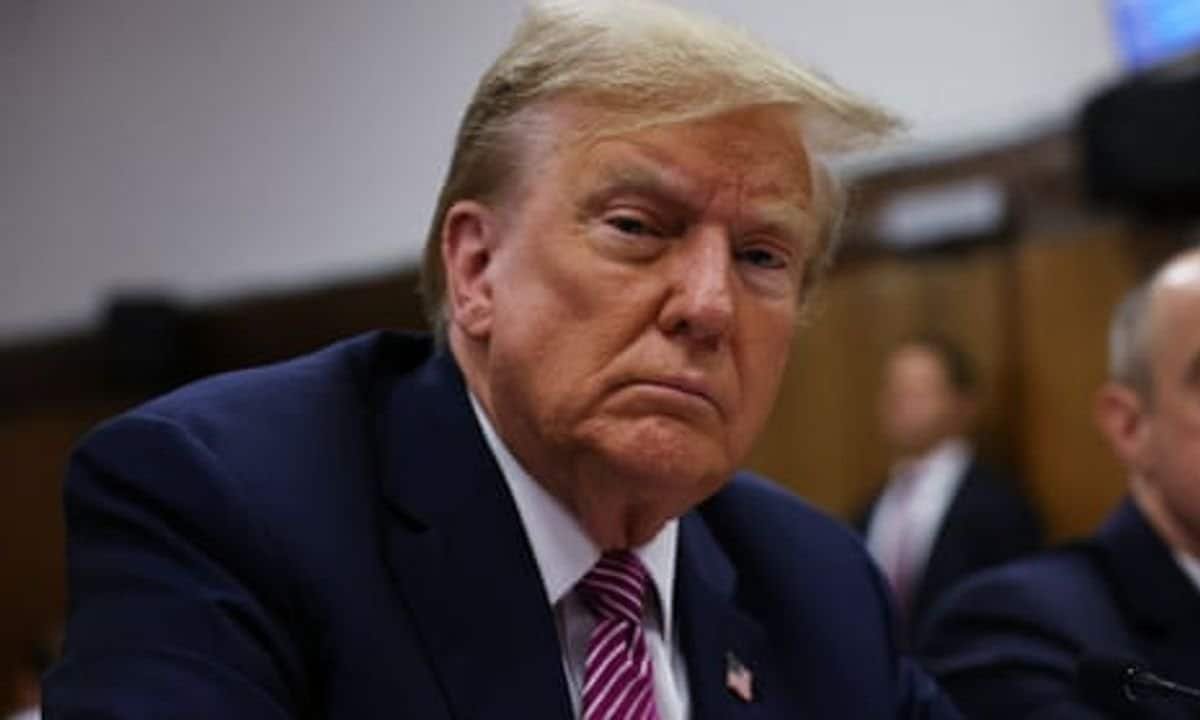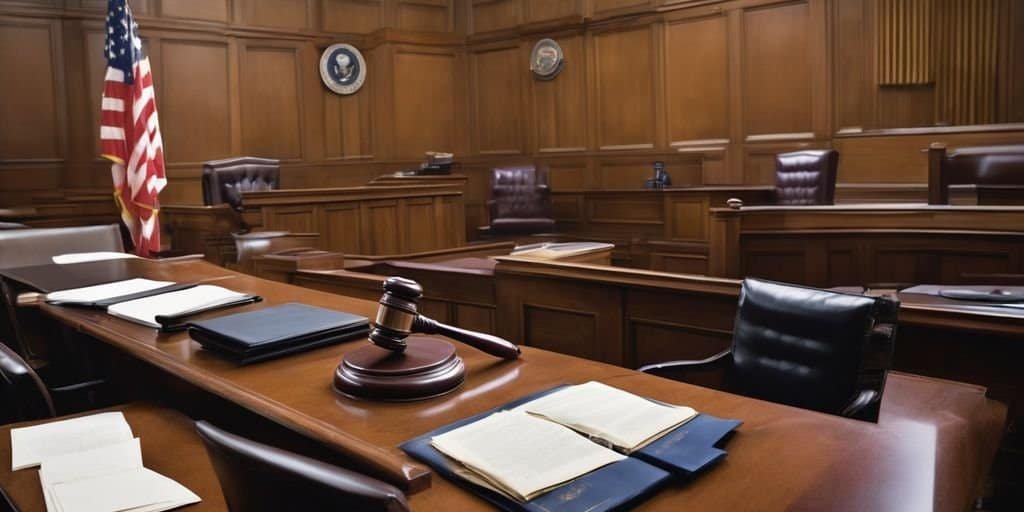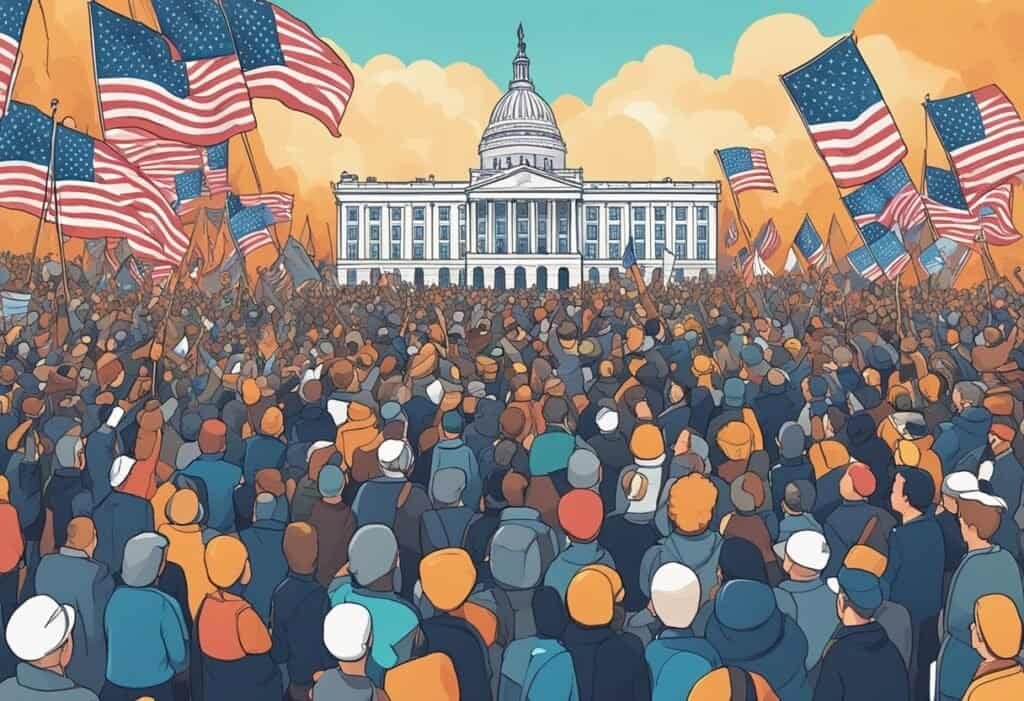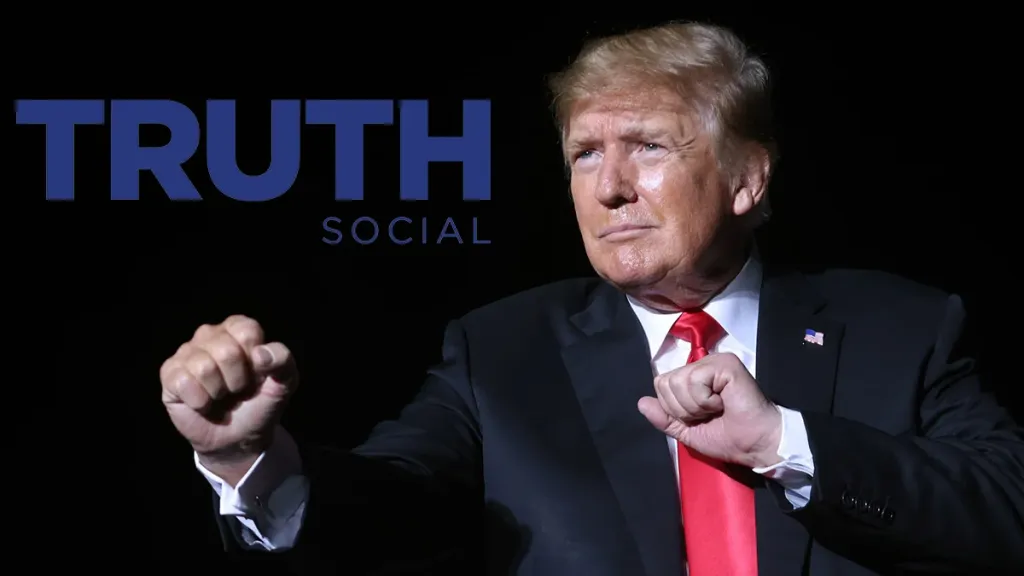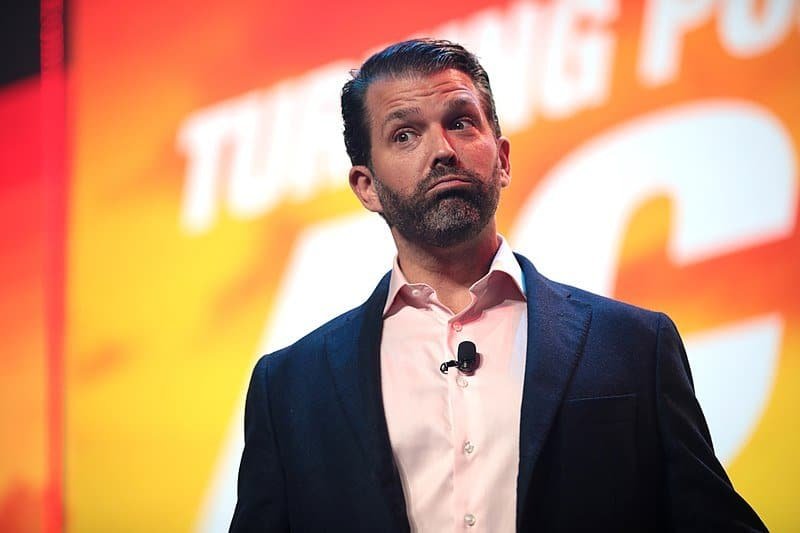As the legal proceedings against Donald Trump unfold, many are speculating about the potential consequences he might face if convicted. With numerous felony charges looming, the possibility of jail time is a topic of intense discussion. This article delves into the charges, the legal process, and the broader implications of a possible guilty verdict for the former President.
Table of Contents
ToggleKey Takeaways
- Trump faces 34 felony counts which carry a potential maximum sentence of over a decade in prison, indicating that jail time is a realistic outcome if convicted.
- The charges against Trump are state cases, meaning a presidential pardon is not an option for self-clemency, further complicating his legal situation.
- Legal experts suggest that, based on precedent, incarceration is probable for the types of felonies Trump is charged with, even for first-time offenders.
- A conviction would not automatically disqualify Trump from running for or serving as President again, raising constitutional and political questions.
- Public and media scrutiny is intense, and the outcome of these trials could significantly impact Trump’s political career and the public’s perception of the justice system.
Understanding the Charges Against Donald Trump

Overview of the Felony Counts
Donald Trump is facing a series of legal challenges, including 34 felony counts of falsifying business records. These charges are connected to a hush money payment and carry significant legal implications. Each count is a Class E felony under New York law, which is considered the lowest level felony but still holds a weighty maximum sentence of four years in prison per count.
The essence of the charges lies in the intent to defraud, which includes the purpose to commit or conceal another crime. Trump has entered a plea of not guilty to all charges.
While the possibility of consecutive sentences exists, experts suggest that due to Trump’s lack of a felony criminal record and the nonviolent nature of the offenses, a consecutive maximum sentence is unlikely. Instead, the judge has the discretion to impose concurrent sentences or a reduced term. Here’s a brief overview of the potential sentencing structure:
| Count | Maximum Sentence Per Count | Total Maximum Sentence Cap |
|---|---|---|
| 34 | 4 years | 20 years |
The legal proceedings will further clarify the potential outcomes, but the severity of the charges underscores the gravity of the situation Trump faces.
Potential Maximum Sentences
The charges facing Donald Trump carry significant weight under New York law. Each of the 34 felony counts is classified as a “Class E felony,” the lowest level felony in the state, with a maximum penalty of four years in prison per count. However, the total maximum sentence is capped at 20 years, regardless of the number of counts.
Judges in New York have the discretion to set sentencing ranges, making an individual eligible for parole at the lower end, which could be as little as one-and-a-third years per count. Good behavior could further reduce the time served. Additionally, the judge could opt for a sentence that includes probation, avoiding incarceration altogether.
While the possibility of a lengthy prison sentence exists, legal experts suggest that the actual sentence, if any, could be much less severe. The appellate division is unlikely to uphold an excessively long sentence, indicating that a more reasonable sentence might involve a minimum period of incarceration exceeding one year.
Implications of State vs. Federal Charges
The distinction between state and federal charges is crucial in understanding the potential legal outcomes for Donald Trump. Federal charges are prosecuted by the United States government and often involve violations of federal law, which can include a wide range of offenses from financial crimes to national security breaches. State charges, on the other hand, are prosecuted by individual states and typically concern violations of state laws.
The investigative agencies and courts involved differ significantly between the two. Federal cases are often investigated by national agencies such as the FBI and are tried in federal courts. State cases are handled by state police and local law enforcement, with trials taking place in state courts. The implications of being charged at the state level versus the federal level can affect everything from the resources allocated for prosecution to the potential strategies for defense.
The interplay between state and federal jurisdictions can lead to complex legal scenarios, especially when charges overlap. For instance, a state crime like falsifying business records could be coupled with a federal offense such as campaign finance violations, raising intricate questions during trial and potential appeals.
Moreover, the sentencing guidelines and options for punishment can vary widely. While federal courts often have mandatory minimum sentences for certain crimes, state courts may have more discretion, allowing for a range of sentencing outcomes from imprisonment to probation.
The Legal Process and Potential for Incarceration

Jury Selection and Trial Proceedings
The jury selection process for Donald Trump’s trial has been a meticulous effort to ensure a fair and impartial group. The court has successfully narrowed down hundreds of potential jurors to a final selection of 12 jurors and six alternates. This critical phase took place in Manhattan, away from the public eye, with the jurors’ identities protected under a gag order.
During the selection process, the potential jurors underwent extensive questioning, revealing insights into their lifestyles, news sources, and political leanings. The aim was to uncover any biases that could affect their judgment during the trial.
The strategy employed in the jury selection is pivotal, as it sets the stage for the trial proceedings. The defense’s approach, which includes constant motions and appeals, appears to be an attempt to influence the jury pool and potentially secure a favorable outcome.
Here’s a brief overview of the jury composition:
- 12 jurors selected for the trial
- 6 alternates to step in if needed
The trial’s commencement has been met with attempts to delay, but these have been unsuccessful, signaling the judiciary’s commitment to moving forward without undue postponement.
Legal Experts Weigh In on Incarceration Odds
The discourse surrounding the potential incarceration of Donald Trump is rife with speculation, but legal experts offer a more measured perspective. The consensus suggests that immediate imprisonment is highly unlikely, even in the event of a conviction. Experts point to the standard practice of releasing convicted individuals on bail during the appeal process, which could significantly delay any actual jail time.
The likelihood of Trump facing immediate jail time post-conviction is notably slim, with estimates falling below 1%. This is due in part to the ability to appeal and the typical judicial leniency afforded to first-time offenders in similar cases.
However, drawing from historical precedents, some level of incarceration is deemed probable if a guilty verdict is reached. A review of similar cases indicates that defendants with no prior criminal history have received jail sentences for comparable offenses. The table below summarizes expert opinions on the matter:
| Expert | Immediate Incarceration Odds | Post-Appeal Incarceration Likelihood |
|---|---|---|
| Moscow | Less than 1% | Not specified |
| Florence | Less than 1% | Not specified |
| Eisen | Unlikely by Election Day | Likely |
While the legal process unfolds, the political implications of Trump’s potential conviction continue to stir debate, with many questioning how it would affect his ability to participate in future elections or govern effectively.
Comparison with Similar Cases and Precedents
When considering the potential outcomes for Donald Trump, it is instructive to look at similar cases and legal precedents. Legal experts often reference past cases to gauge the likelihood of incarceration for similar offenses. For instance, defendants with no prior criminal history have been sentenced to jail for crimes such as falsifying records, suggesting that some level of incarceration could be expected if Trump is found guilty.
The strength of the Justice Department’s case, particularly in relation to election-related charges, has been noted by many legal commentators. This, coupled with the agency’s strategic narrowing of the case, indicates a robust approach as the trial looms.
The unique combination of state and federal charges in Trump’s case adds a layer of complexity. Observers are keen to see how this will play out during the trial and any subsequent appeals. The anticipation of how the courts will handle this blend of charges is high, with potential implications for the appellate process and even Supreme Court review.
The Political and Constitutional Implications

Can a Convicted Felon Serve as President?
The question of whether a convicted felon can serve as President of the United States has a surprising answer: the U.S. Constitution does not explicitly prohibit it. Legal experts affirm that there are no limitations based on character or criminal record at the federal level. While many states have laws preventing felons from holding state or local office, these restrictions do not extend to the highest office in the land.
The unique situation of a convicted felon serving as President would undoubtedly challenge conventional norms and raise complex legal and logistical questions.
For instance, if a sitting president were to be incarcerated, it would create an unprecedented scenario. The Secret Service, responsible for the president’s security, would face the dilemma of how to manage their protective duties within a prison environment. Additionally, the practicalities of executing presidential duties from behind bars would be fraught with complications.
The Scenario of Governing from Behind Bars
The hypothetical situation of a U.S. President governing from incarceration is unprecedented and laden with legal ambiguities. If Donald Trump were to be convicted and still win an election, his presidency would be fraught with challenges. The legal system has not explicitly addressed this scenario, leaving many questions unanswered.
The complexities of a President serving from prison would involve a myriad of logistical and constitutional issues, ranging from the exercise of executive powers to the role of the Secret Service.
While the Constitution does not disqualify a convicted felon from serving as President, the practicalities of such a situation are complex. For instance, a President in prison could face difficulties in fulfilling the duties of the office, and there would be significant security concerns. The Secret Service, tasked with protecting the President, would have to navigate the unique environment of a correctional facility.
In the case of federal charges, a sitting President might attempt to pardon themselves or influence their conditions of confinement, though such actions would likely be contested and could plunge the country into a constitutional crisis.
Impact on Future Elections and Trump’s Political Career
The potential conviction of Donald Trump carries significant weight for his political aspirations, particularly as he eyes the 2024 presidential race. A guilty verdict could reshape voter perceptions and influence the dynamics of future elections. Despite legal hurdles, experts affirm that even a conviction in the hush money case would not legally bar Trump from running for federal office.
- A Supreme Court ruling on Trump’s claim of presidential immunity could be pivotal.
- Swing state voters may be swayed by a conviction, with over half indicating an unwillingness to vote for a convicted Trump.
- Trump’s core supporters appear unshaken, viewing the legal challenges as politically driven.
The intersection of legal proceedings and political campaigns is navigating uncharted territory, with courtroom decisions potentially casting long shadows over the campaign trail.
The outcome of these legal battles not only tests the boundaries of American democracy but also sets a precedent for the role of legal accountability in the political sphere. The implications for Trump’s political career are profound, as a conviction could either galvanize his base or alienate moderate voters, thereby altering the landscape of American politics.
Public Perception and Media Analysis

Media Coverage of Trump’s Legal Challenges
The media has been intensely focused on the unfolding legal challenges faced by former President Donald Trump. Cable news networks initiated their coverage on the first day of Trump’s trial, grappling with the absence of cameras in the courtroom. This limitation has not dampened the extensive analysis and reporting on the proceedings.
The coverage has varied widely across different outlets, with some networks dedicating significant airtime to legal experts and commentators. The narrative has been shaped by the intricate details of the case, Trump’s interactions with the judiciary, and the implications of his actions on social media platforms like Truth Social.
The intensity of media scrutiny reflects the unprecedented nature of a former president standing trial. The public’s reliance on media reports is heightened by the lack of direct courtroom access, making the role of journalists critical in conveying the trial’s atmosphere and developments.
Financial aspects also come into play, as reports suggest Trump’s legal defenses in multiple cases are incurring substantial costs. The sustainability of his defense fund is a matter of speculation, with some sources indicating a burn rate of hundreds of thousands of dollars daily.
Public Opinion on the Possibility of Jail Time
The public’s view on whether Donald Trump could face jail time if convicted is a complex tapestry of opinions, often reflecting the polarized nature of current political discourse. The divide between what happens in the courtroom and the court of public opinion is stark, with the latter being influenced by a myriad of factors beyond just the facts of the case.
- Precedent and expectations: Public opinion is swayed by past cases where similar charges have led to incarceration, setting a certain expectation for Trump’s case.
- Awaiting trial: As the trial progresses, speculation abounds, with many wondering about the potential for Trump to return to the political arena regardless of the outcome.
- Incarceration a real possibility: Experts like Norman Eisen suggest that, based on precedent, some level of incarceration is plausible if Trump is found guilty.
The possibility of incarceration is not just a legal matter but also a significant point of discussion among the electorate, with potential implications for the political landscape.
The Role of Political Bias in Public Discourse
The discourse surrounding Donald Trump’s legal challenges is heavily influenced by political bias, which shapes public perception and media narratives. Supporters and detractors of Trump often view the same set of facts through vastly different lenses, leading to polarized opinions on the possibility of jail time. This division is not only evident among the electorate but also within the media outlets that cater to specific political leanings.
- Supporters may see the charges as a witch hunt, an attempt to sideline a political adversary using the legal system.
- Detractors argue that no one is above the law, and that accountability is essential, regardless of political affiliation.
The interplay between legal facts and political loyalty creates a complex environment where the truth can become obscured by partisan agendas.
The impact of political bias is not limited to public debates; it also affects the potential jury pool, complicating the selection process and possibly influencing the trial’s outcome.
Exploring the Outcomes of a Guilty Verdict

Sentencing Possibilities for Trump
If Donald Trump is found guilty of the charges against him, the sentencing phase will be a critical juncture. Precedent suggests that some level of incarceration is probable, especially in cases involving falsification of records. However, the non-violent nature of the accusations and Trump’s lack of a criminal history could influence the judge’s decision towards leniency, potentially resulting in probation or community service.
The sentencing possibilities range from fines to incarceration, with various factors influencing the final decision. The seriousness of the crime and any mitigating circumstances will be key considerations for the judge.
A review of similar cases in New York indicates that incarceration is not off the table. Yet, legal experts like Mitchell Epner expect a sentence of probation for Trump if convicted. The trial, which began on April 15 in New York, will ultimately determine the outcome. Meanwhile, political implications loom large as a conviction could impact Trump’s future election prospects, regardless of the sentence imposed.
The Reality of Probation and Community Service
In the event of a conviction, the sentencing for Donald Trump could diverge from incarceration to alternative forms of punishment. Probation is a potential outcome, where the judge might opt for a non-custodial sentence, placing Trump under supervision with specific conditions to follow. Violation of these terms could lead to imprisonment.
The judge has the discretion to impose a range of sentences, including community service. This could involve Trump participating in public service activities, a stark contrast to his former role as President. The nature of these services would be determined by the court and aim to reflect the gravity of the offense.
The complexity of sentencing a former president is underscored by the need to balance legal precedent with the unique circumstances of the individual’s past position and Secret Service protection.
While incarceration remains a possibility, the legal system also provides for rehabilitation and reintegration into society, which probation and community service are designed to facilitate.
Long-Term Consequences of a Conviction
The repercussions of a guilty verdict for Donald Trump would extend far beyond the immediate sentence. A conviction could fundamentally alter his public image and political viability, potentially alienating key voter demographics. For instance, a new POLITICO Magazine/Ipsos poll suggests a conviction could turn off independents, indicating a shift in the electoral landscape.
The long-term consequences are not just personal but also political. A conviction may serve to dampen the fervor of Trump’s base and complicate any future political campaigns.
The following points outline the potential long-term impacts of a conviction on Trump’s life and career:
- Diminished public trust and credibility
- Legal restrictions and ongoing scrutiny
- Challenges in mounting a political comeback
- Possible impact on business dealings and financial status
While the possibility of jail time looms, the broader implications of a conviction could be just as significant, shaping Trump’s legacy and influence for years to come.
Conclusion
As the legal proceedings against Donald Trump unfold, the question of whether he could face jail time if found guilty remains a topic of intense speculation. With 34 felony counts and the potential for more than a decade in prison, the stakes are undeniably high. Legal experts suggest that, based on precedent, some level of incarceration is probable, though mitigating factors could influence the severity of the sentence. Despite the severity of the charges, a conviction would not necessarily bar Trump from holding presidential office again. As jury selection progresses and the trial commences, the nation watches closely to see if a former president will indeed be sentenced to prison—a scenario unprecedented in American history.
Frequently Asked Questions
What charges is Donald Trump facing?
Donald Trump is facing 34 felony counts of falsifying business records in New York, with the possibility of additional charges in other jurisdictions.
Could Donald Trump face jail time if convicted?
Yes, if convicted on all counts, Trump could theoretically face more than a decade in prison, although actual sentencing would depend on various factors including the judge’s discretion.
Will a conviction prevent Trump from running for President again?
A conviction would not preclude Trump from becoming president again, as the charges are state cases and do not affect eligibility for federal office.
Can Trump pardon himself if found guilty?
No, because the case is at the state level, Trump would not be able to pardon himself if found guilty.
What are legal experts saying about the likelihood of Trump going to jail?
Legal experts suggest that incarceration is plausible if Trump is found guilty, citing similar cases where defendants received jail time for falsifying records.
What would happen if Trump is convicted and then re-elected as President?
The scenario of Trump governing from behind bars is unprecedented and raises complex constitutional questions, but there is no clear prohibition against a convicted felon serving as President.

